Bios
Presentations of the members of the steering committee.
Niklas Hammar

PhD, Professor emeritus, Institute of Environmental Medicine, Karolinska Institutet; Chair of the AMORIS Steering Committee and long standing member of the core research team of the cohort.
Professor Niklas Hammar holds a PhD in epidemiology from Karolinska Institutet in 1992. He became associate professor of epidemiology in 1997 and adjunct professor of epidemiology in 2010 at Karolinska Institutet. During the period 1978-2001 he conducted research and teaching at the department of Hygiene, Karolinska Institutet, Statens Miljömedicinska Laboratorium, the Institute of Environmental Medicine and during the later part of this period at a Department of Public Health at the Stockholm County Council. During this time he was part of a team initiating and building a Master's program of Epidemiology and Biostatistics at Karolinska institutet, starting in 1987. As a result of this activity he co-published a book in basic biostatistics in Swedish and in English.
Based on the experience from his thesis on time trends and population differences in acute myocardial infarction in Sweden, he built and was responsible for a local register of myocardial infarction in Stockholm County that was based on register linkages. He also, together with professor Torbjörn Ivert, developed a local register for thoracic surgery that was used in several publications and thesis work. In 2002, he joined a team working on epidemiology and Real World Evidence at AstraZeneca (AZ) Research & Development. During the years at AZ he was among other things Head of the European team in Epidemiology and helped building the Real World Evidence capability in the company, in particular in the Cardiovascular and Renal, Metabolic therapeutic area, to an industry leading position. He was also member of the scientific committee for large epidemiologic studies, in particular for diabetes, including the DISCOVER and the CVD REAL studies.
Professor Hammar has been main supervisor for four PhD students and co-supervisor for seven. He has co-authored more than 200 scientific papers in international scientific journals.
Göran Walldius
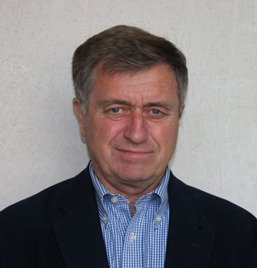
PhD, Senior professor, Institute of Environmental Medicine, Karolinska institutet; Vice chair of the AMORIS Steering Committee.
Research field
My research is focused on the influence of metabolic and inflammatory abnormalities and other risk factors for subsequent cardiovascular, atherosclerotic, diabetic and cancer diseases. Since 1985 we are running the AMORIS (Apolipoprotein-related MOrtality RISk) study in close collaboration with Ingmar Jungner, the founder of the Central Automation Laboratory, CALAB. We investigate if the atherogenic apolipoprotein (apo)B, and the anti-atherogenic apoA-I are stronger risk factors for myocardial infarction and stroke than the conventional LDL (the “bad”) and HDL (the “good”) cholesterol. Our study results are based on laboratory data from 175 000 men and women from the greater Stockholm area followed for 20 years. From linkages to various health and disease registers we have, so far, found that the balance between the “bad” apoB and the “good”apoA-I defined as the apoB/apoA-I ratio - is a stronger risk factor for myocardial infarction and stroke than the LDL/HDL ratio. ApoB and apoA-I are now being introduced in clinical care in many Swedish and some international health care centres. I have spent most of my research focussing on the development of the AMORIS cohort as a foundation for research related to various metabolic and inflammatory risk factors and chronic diseases as further presented in a large number of publications.
Education
During all the years since 1973 I have worked as an internist and cardiologist at Karolinska University Hospital. 1976 I wrote my thesis. I have also been doing research at King Gustaf V research institute (GV),Stockholm from 1973-1995 and from 1996 also as Adjunct Professor in collaboration with AstraZeneca, Mölndal, Sweden. In 2000 I moved to the Institute of Environmental Medicine (IMM), at the unit of Cardiovascular Epidemiology.
Some selected Publications
Walldius G. The apoB/apoA-I Ratio is a Strong Predictor of Cardiovascular Risk, http://dx.doi.org/10.5772/47869. 2012, pages 95-148. Published in: Lipoproteins in Health and Diseases, ISBN 978-***********-6, eds. Frank S and Kostner G.
Walldius G, Jungner I. The apoB/apoA-I ratio: a strong, new risk factor for cardiovascular disease and a target for lipid-lowering therapy - a review of the evidence. J Intern Med 2006; 259:493-519.
Walldius G, Aastveit AH, Jungner I. Stroke mortality and the apoB/apoA-I ratio: results of the AMORIS prospective study. J Intern Med 2006; 259:259-66.
Sniderman AD, Furberg CD, Keech A, Roeters van Len nep JE, Frohlich J, Jungner I, Walldius G. Apolipoproteins versus lipids as indices of coronary risk and as targets for statin therapy treatment. Lancet 2003;361:777-80.
Walldius G, Jungner I, Holme I, Aastveit AH, Kolar W, Steiner E. High apolipoprotein B, low apolipoprotein A-I, and improvement in the prediction of fatal myocardial infarction (AMORIS study): a prospective study. Lancet 2001;358:2026-33.
Contact
Work: +46 8 524 800 00 Mobile: +46 70 676 00 07 E-mail: goran.walldius@ki.se
Collaboration
The AMORIS-KI project is located at IMM, KI. A Steering Committee is responsible for the conduct of the project (Göran Walldius, Professor Emeritus, chair, IMM, Niklas Hammar, Adjunct professor, IMM, Ulf de Faire, Professor Emeritus, IMM, Mats Lambe, Professor, Regional Cancer Center, Uppsala and Ingmar Jungner, Associate Professor, CALAB and IMM. The Steering Group is responsible for evaluation and prioritization of research proposals within the overall research plan. We are collaborating with Ingar Holme and Are Aastveit, both professors in statistics, Oslo, Norway, Mats Lambe, Lars Holmberg, professors in cancer research and Mieke Van Hemelreijk, Lecturer in Cancer Epidemiology, Kings Collage London, School of Medicine, London, UK, and also with several of the colleagues who have delivered their own databases to the project.
Maria Feychting
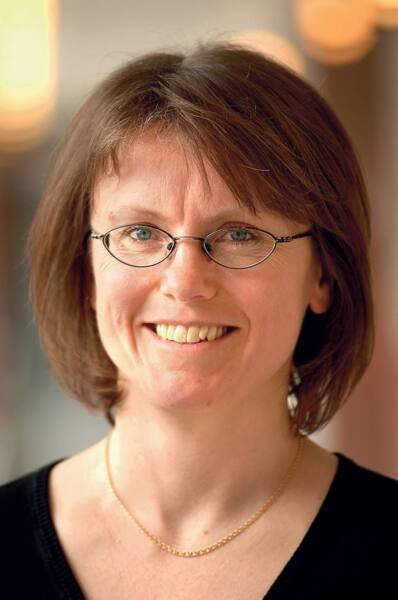
Phd, Professor, Institute of Environmental Medicine, Karolinska institutet.
Maria Feychting is Professor of Epidemiology at Karolinska Institutet, Institute of Environmental Medicine, and Head of the Unit of Epidemiology. Her research is focused on risk factors for chronic diseases, primarily cancer but also other chronic diseases, such as various neurodegenerative diseases. She has a specific interest in adult and childhood brain tumor etiology, both in terms of environmental and genetic factors, as well as gene-environment interactions, and she has extensive international collaboration within this research area. Another research area of interest is childhood cancer, both in terms of risk and survival, as well as long-term socioeconomic consequences of childhood cancer. Building on this, her research interest has been extended to genetic syndromes associated with increased cancer risk.
She has extensive experience from register based research utilizing nationwide health data registers and combining data from the Nordic countries. She is the PI of several registry based studies on brain tumors, childhood cancers, and genetic syndromes, funded by the primary Swedish national research councils, focused on the influence of hormones, anthropometric measures, birth characteristics, socioeconomic status, maternal and paternal occupational and environmental exposures and other factors in relation to brain tumor risk and childhood cancer. She participates in several health risk assessment expert groups e.g. for the WHO, ICNIRP, as well as other national and international scientific committees. She teaches advanced epidemiology courses at the Karolinska Institutet Masters of Public Health Program “Public Health Epidemiology”.
Sofia Carlsson
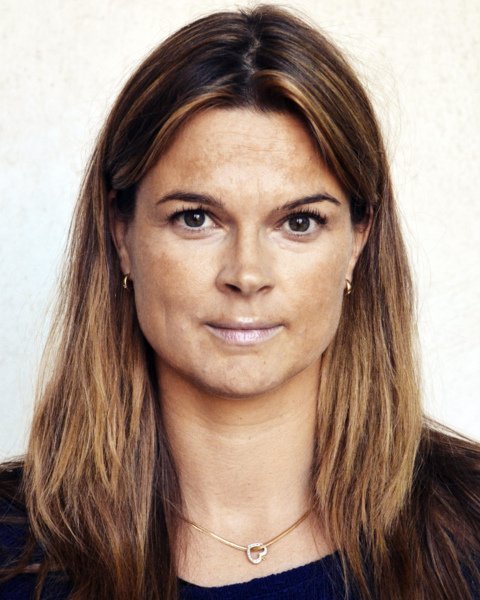
PhD, Associate professor, Institute of Environmental Medicine, Karolinska institutet.
I am an associate professor of epidemiology at the Institute of Environmental Medicine at KI where I lead a research group in the field of diabetes epidemiology. My main research interest is the influence of environmental and genetic factors on the development and progression of diabetes, especially autoimmune diabetes in adults. I am a member of the steering committee of AMORIS since 2017.
Mieke Van Hemelrijck
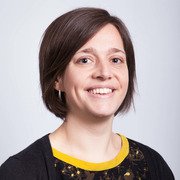
PhD, Associate professor in Cancer Epidemiology, King's College, London.
Dr Van Hemelrijck studied an MSc in Biomedical Sciences (2001-2005) and an MSc in Statistical Analysis (2005-2006) at Ghent University, Belgium. While doing so, she got engaged in epidemiology research in the field of urology: hypospadias as well as transsexualism. She continued her epidemiological training by spending two years at the Harvard School of Public Health (2006-2008), where she obtained an MSc in Population & International Health. She stayed focused on urological research and worked on projects related to second-hand smoking and bladder cancer.
From 2008-2010, she worked with Professor Holmberg at King’s College London and obtained a PhD in Cancer Epidemiology. Her study findings, published in over 600 news articles to date, suggested that all men with prostate cancer were at higher risk of developing various kinds of non-fatal and fatal cardiovascular disease. The research, which has received worldwide attention, had a significant impact on the US Food and Drug Administration (FDA), which used the findings to help inform a safety review of commonly used prostate cancer drugs in May 2010. In 2012, Dr Van Hemelrijck was appointed at King’s College London, where she now runs the Translational Oncology & Urology Research (TOUR) team and is an Associate Professor in Cancer Epidemiology.
The TOUR team aims to turn science into better healthcare by translating uro-oncology research into medical practice. The translational work of the group encompasses a heterogeneous set of activities in the area of prostate, bladder, renal, and testicular cancer: epidemiology, bioinformatics, immunology, histopathology, randomized clinical trials, patient care and experience, radiotherapy, etc. TOUR brings together a team of researchers, clinicians, students, research nurses, trial coordinators, and database managers who are active across the field of translational research – covering both bedside and bench whilst contributing their own skills and knowledge.
Karin Leander
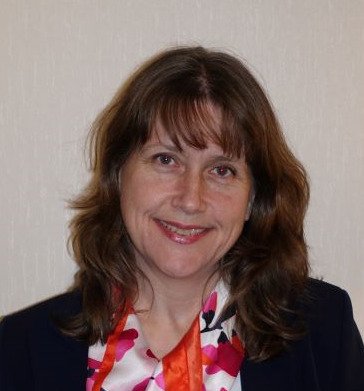
Senior researcher, PhD, MPH, associate professor of epidemiology, Unit of Nutritional Epidemiology, Institute of Environmental Medicine, Karolinska Institutet
I have a profound interest in epidemiology which is my main area of expertise. I lead a small research group that works towards an overarching goal to increase knowledge on how to prevent cardiovascular diseases in women and men. Specific aims include deepening our understanding of 1) the determinants of myocardial infarction fatality, 2) the influence from female sex steroid hormones on cardiovascular disease pathology, and 3) the interactions between genes and lifestyle factors, including dietary factors, in cardiovascular disease pathology. In parallel with my research, I dedicate time to teach epidemiology to doctoral students. I also take responsibility for public health related education of medical students at Karolinska Institutet.
